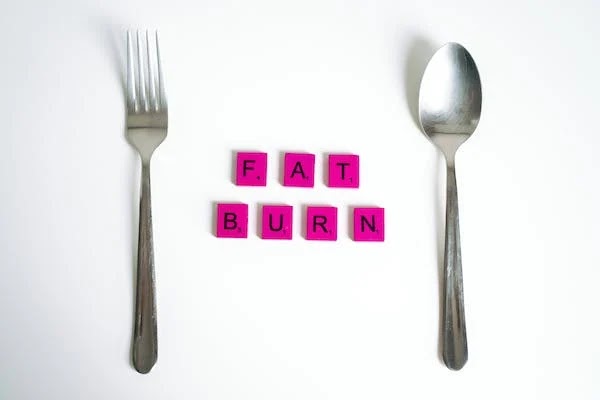Does exercise help you lose weight ? Can exercise help you lose weight ? What precisely is the point of exercise?| Health Tips
You might be curious about how often and what kinds of exercise you should perform if you're attempting to lose weight.
Simplest definition of weight loss: burning more calories than you take in. Exercise should therefore be a part of your regimen because it increases calorie burning.
However, engaging in strenuous activity might also stimulate your hunger. This could lead to uncertainty regarding the function of exercise in weight loss and its efficacy.
So, if you're attempting to lose weight, what precisely is the point of exercise? This article examines the data to help you discover the solution and determine what is best for you.
Cardio exercise and weight
Aerobic exercise, usually referred to as cardio, is one of the most well-liked forms of exercise for weight loss.
Examples comprise:
Walking
Running
Cycling
Swimming
Your muscle mass isn't much affected by aerobic activity, at least not in comparison to weightlifting. However, it burns calories quite effectively.
In a 10-month trial, the effects of cardio without dieting on 141 individuals with obesity or overweight were investigated. Participants were divided into three groups; they were not instructed to cut back on calories.
4.3% of the participants who burnt 400 calories in each cardio session (5 times per week) and 5.7% of the participants who burned 600 calories in each session (5 times per week) reduced body weight, respectively. The exercise-free control group really put on 0.5% of their body weight.
Cardio exercise can help you burn fat, particularly the unhealthy belly fat that raises your risk of type 2 diabetes and heart disease, according to additional studies.
If you maintain the same caloric intake while adding cardio to your lifestyle, you should be able to better control your weight and enhance your metabolic health.
Summary
Regular aerobic exercise can improve the amount of calories you burn and aid in body fat loss.
Strength exercise and weight
Any physical exercise can aid in calorie burning.
However, there are additional advantages to resistance exercise, such as weight lifting. Your muscular mass, strength, and tone can all be improved by resistance training.
One investigation into the impact of cardio, resistance training, or both on body composition during a period of deliberate weight loss involved 141 older adults who were obese. According to this study, people who only did cardio or no exercise reduced fat, but they also lost more muscle and bone mass than people who conducted resistance training.
Therefore, resistance exercise seems to have a protective effect on bone and muscle during times of calorie restriction.
More Read : How To Look Younger ? | Tips for looking Younger | Women's Health
Increased muscle mass also speeds up metabolism, allowing you to burn more calories continuously, even while at rest. This is due to the fact that muscle has a higher metabolic activity than fat, requiring more energy.
Additionally, this aids in avoiding the potential slowdown in metabolism that might follow weight loss.
Because of this, adding resistance training of some kind to a successful long-term weight loss program is essential. It makes it simpler to maintain weight loss, which is actually more difficult than initial weight loss.
Summary
By lifting weights, you can keep your metabolism from slowing down as you lose fat and maintain and build muscle.
High intensity interval training and weight
High intensity interval training (HIIT) is a style of exercise that entails repeating a cycle of short, intense workouts interspersed with rest periods. HIIT offers the advantages of both aerobic and resistance training and may be done with either.
Even while most HIIT workouts only last 10 to 20 minutes, they have significant weight loss advantages.
For persons who are overweight or obese, HIIT and aerobic exercise both reduce body fat and waist circumference, according to a 2017 analysis of 13 high-quality studies.
However, HIIT exercise was 40% faster than cardio at producing the same results.
Since HIIT is so intense, you should speak with a doctor before beginning a new HIIT exercise, especially if you have any known heart issues.
Summary
With only approximately half the time commitment, HIIT may provide advantages comparable to those of aerobic exercise.
Exercise and hunger
You've probably heard that working out can increase hunger, and perhaps you've even seen that you eat more after a challenging session.
The majority of research, however, indicates that exercise can reduce hunger.
In a study involving 20 physically fit and healthy individuals, it was shown that they ate more at their meal prior to exercise than after, and that overall, participants ate less on days when they exercised than on days when they did not.
Another study indicated that short HIIT sessions had a significant appetite-suppressing impact on 26 obese women who were on low-calorie diets.
Further reinforcing the idea that exercise helps suppress hunger, researchers have found that exercise in the morning seems to be better for energy balance and calorie consumption than exercise in the evening.
Nevertheless, further study is required, and individual differences in hunger responses to exercise are probably significant. Consider exercising for shorter periods of time (like HIIT) or less intensely if you're attempting to lose weight but find that you eat more than normal after arduous or lengthy workouts.
Summary
Exercise may increase or decrease your hunger, although most research suggests that exercise decreases appetite.
More Read : What are the mistakes in losing belly fat ? What are the common mistakes in weight loss? | Weight loss tips
Added advantages of exercise
Exercise is really beneficial for your health in a variety of other ways besides merely helping you lose weight.
Regular exercise will help you better control your blood sugar and may lower your chance of developing chronic conditions including heart disease, type 2 diabetes, and some malignancies.
Additionally, exercise aids in bone health, muscle maintenance and growth, and the prevention of diseases like osteoporosis, which is characterized by brittle bones.
Exercise also has certain advantages for the mind. It can aid in stress reduction and improved stress management, and it may even provide some protection against neurological diseases like Alzheimer's.
When thinking about how exercise affects you, keep these advantages in mind. Even if it doesn't significantly affect weight reduction, it still offers other advantages that are just as significant, if not more so.
Summary
Exercise is beneficial for much more than just weight loss. It has a number of strong advantages for your body and brain.
Recommendations
Regardless of your weight goals, exercise needs to be a part of your routine because it has so many health advantages. In fact, those who have dropped at least 30 pounds (14 kg) and kept the weight off for at least a year and are registered in the National Weight Control Registry report exercising for at least an hour every day.
The Physical Activity Guidelines for Americans specify the recommended levels of activity for people of all ages to promote health. For grownups, they are:
Aerobic (cardio) exercise: 150–300 minutes per week of moderate intensity or 75–150 minutes per week of severe intensity aerobic activity
Muscle-strengthening (resistance) exercise: Workouts that target all main muscle groups two or more days a week are considered muscle-strengthening (resistance) exercises.
However, since it will have a considerably greater influence, nutrition should come before exercise if your aim is weight loss. If you have a limited amount of time, strength training (rather than cardio) can help you maintain your muscle mass and metabolic rate. You can also try HIIT to burn calories similarly to cardio in a shorter amount of time.
Don't solely rely on the scale to monitor your progress, either. Your weight may not change as rapidly as you'd like it to if you're growing muscle while reducing fat, but you'll be healthier for it. Keep track of how your clothing fits as well as your measurements. Compared to weight alone, these are considerably better predictors of fat loss.
Summary
Aim for at least 150 minutes of moderate intensity activity and two sessions of resistance training per week, whether or not you're trying to lose weight.
The conclusion
Exercise is crucial for overall health, and various forms of exercise may have unique benefits for weight loss.
Resistance training, which can maintain your lean body mass and boost the number of calories you burn while at rest, and HIIT, which offers the same advantages as cardio but takes less time, may be of special interest to you if you're attempting to lose weight.
But keep in mind, it's also crucial to follow a somewhat calorie-restricted diet made up primarily of whole foods if you want to lose weight in a healthy way.

.jpg)





.webp)
